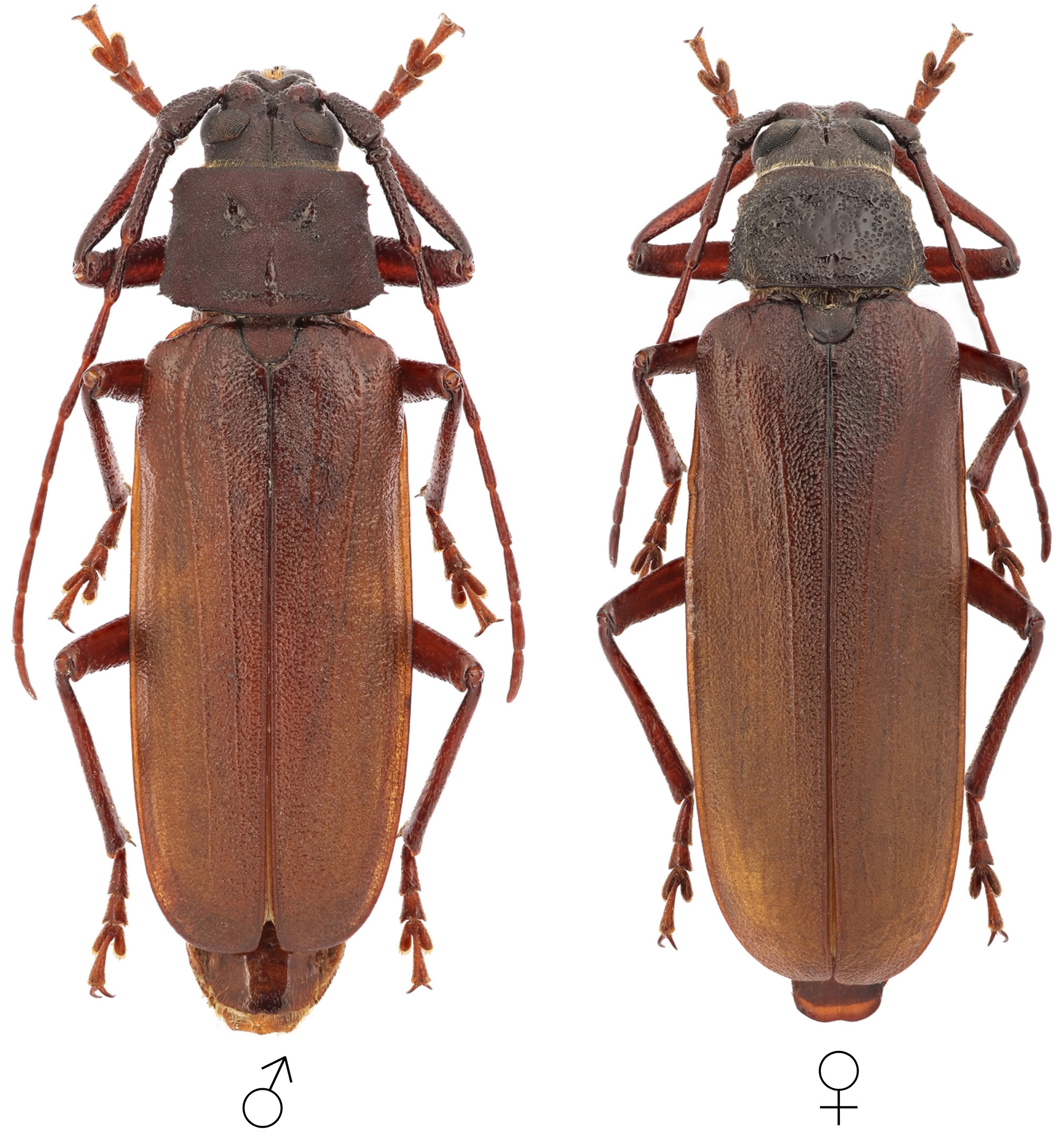ssp. proksi Sláma, 1982
[= Prinobius scutellaris proksi Sláma, 1982]
Subfamilia: PRIONINAE / Tribus: MACROTOMINI

[Photo © Lech Kruszelnicki]
Prinobius myardi slamorum, a subspecies endemic to Crete, has been described from Omalos environs (Crete, Greece) as Prinobius scutellaris proksi by Milan E.F. Sláma in 1982 [❖]. This polyphagous beetle develops in broad spectrum of deciduos trees (Quercus, Castanea, Platanus, Crataegus, Malus, Pyrus, Morus, Populus etc.). The development takes place in the dead wood from subsurface trunk parts to a height of several meters. The larvae enter deep into the heartwood, where they also pupate. Before pupation, larvae create the exit corridor covered by a thin layer of wood, which is easily penetrated by hatched adults. Sometimes the larvae bore the exit corridor completely and clog the exit hole with coarse sawdust. Life cycle 3 and more years. Adults, active from June to August, are crepuscular/nocturnal and can be attracted by light.
The unclear taxonomic situation within the taxon P. myardi is still debatable and confirmation of the existence/validity of the 5 known subspecies [✧] probably needs further research.
Body length: ♂♂ 34 - 40 mm / ♀♀ 42 - 48 mm Life cycle: several years Adults in: June - August Host plant: polyphagous in deciduous trees (Quercus, Castanea, Platanus, Crataegus, Malus, Pyrus, Morus, Populus etc.) Distribution: an endemic taxon to Crete
The depicted mounted beetles ware collected in Crete.
[❖]
Sláma M.E.F.:
Neu Arten und Unterarten von Cerambyciden aus Kreta (Coleoptera).
Reichenbachia, Dresden 20 (20): 203-212, 1982. [download]
[✧]
Danilevsky M.L.:
Longicorn beetles (Coleoptera, Cerambycoidea) of Russia and adjacent countries. Part 1.
Higher School Consulting, Moscow, 550pp [pages 31-33], 2014. [download]
| Subfamilia | Prioninae Latreille, 1802 |
| Tribus | Macrotomini J. Thomson, 1861 |
| Genus | Prinobius Mulsant, 1842 |
| Species | Prinobius myardi Mulsant, 1842 |
| Subspecies | Prinobius myardi proksi Sláma, 1982 |
